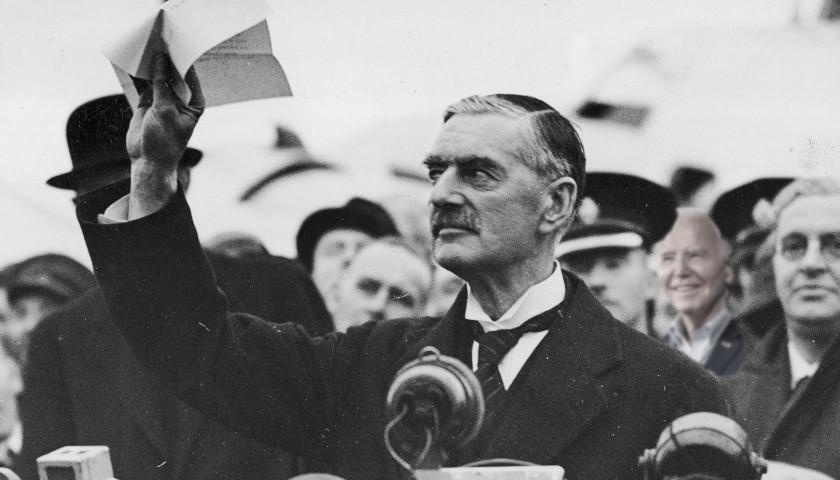Live from Music Row Monday morning on The Tennessee Star Report with Michael Patrick Leahy – broadcast on Nashville’s Talk Radio 98.3 and 1510 WLAC weekdays from 5:00 a.m. to 8:00 a.m. – host Leahy welcomed the original all-star panelist Crom Carmichael to the studio.
At the end of the third hour, Carmichael discusses the importance of innovation in America by giving several examples of American innovators. He discerned between what makes the winners and losers and reasons why it is important.
Leahy: We are talking about Joe Biden’s desire to get rid of shareholder capitalism, Crom.
Carmichael: This is how dangerous that is and what an absolutely just terrible and stupid bimbo-ish idea. And truly it is because what Joe Biden is admitting is that he doesn’t have a clue about the process of innovation. Now, one of the great investors in my lifetime is Warren Buffet.
Warren Buffet started investing in the 50s and he had a stellar track record. I mean an incredible track record for the next 50 years. But since 2008 Berkshire Hathaway stock has gone from 150,000 price per share because he never splits it. Gone from 150,00 price per share to 300,000. So it doubled in 12 years.
Leahy: That’s not bad.
Carmichael: It’s not bad but that’s a six percent return.
Leahy: OK. So it’s not spectacular.
Carmichael: It may be average.
Leahy: For the market.
Carmichael: It may be average. I don’t know if it is or not but I’d have to go calculate. But Warren Buffet has completely missed out on the tech boom. For example, Apple in that same period of time has gone up.
Leahy: From $13. to $245.
Carmichael: Yes. So what I’m saying its gone up 13 times. Google. Facebook. There are many LinkedIn. There are many stocks that have gone up way more than Berkshire Hathaway. But if Joe Biden would pick somebody like Warren Buffet to be his chief investment officer so to speak.
What Warren Buffet has been able to do over his years is he’s been able during times of economic downturns he’s been able to buy cheap. He knows when to enter and buy a stock. And he’s done very well with that. So I’m not being critical of his stock-picking abilities. But what Warren Buffet has not done is he’s not identified innovations.
What happens is when somebody has an idea that nobody else has had, which by the way that’s the definition of innovation. I’m talking about true innovation. When the people who invented Xerox went to 3M. And 3M said carbon paper is all we need. We don’t need copiers.
There’s no need for copiers. Bill Gates took Microsoft to IBM and tried to sell it to them for three million dollars. And IBM said personal computers, that will never happen. That’s what IBM said. So this is what happens when you have a centrally planned economy, the people who supposedly are the experts are the ones who then make the decision and they are by definition they are no longer innovators.
Leahy: The interesting thing if you look at the history of innovation, it’s not a group of government officials who know nothing about products or services that really drive innovation. It’s some average person in the middle nowhere with an idea and skills with the drive to create a product or service.
Carmichael: And I wouldn’t necessarily say they are average. I would say they are unknown.
Leahy: Unknown. That’s a better description Crom, I agree with that.
Carmichael: Because they are coming up with an idea that is unknown. And true innovation is not even heard of. In fact, if you were to take the 10 greatest scientists in the world and put them in a room and say you can’t come out until you all agree on a truly innovative idea. They would starve.
Leahy: They’d never come out.
Carmichael: They’d never be able to come out. Because in order to come to a consensus you have to agree on what you already agree on and then by definition that’s not innovative. And so an innovator is somebody who comes up with an idea that nobody’s ever had, a true innovation.
Leahy: Steve Jobs was one of those guys. He would think of an idea and realize I am going to think of something that people need that they don’t yet even know what it is but when they know what it is they will need it.
Carmichael: Right. And that was the personal computer.
Leahy: Exactly.
Carmichael: He wasn’t actually even the first person to come up with a personal computer. Somebody else did. So somebody else was actually the true innovator. When I was going off to either high school or college, my mother bought me for either Christmas or my birthday a Bomar handheld calculator.
Leahy: Wow.
Carmichael: And it was a small device where when I say small, it was probably about an inch and a half thick. It could add, multiply, subtract, and divide. It could do those four things and it cost $125. way back then. And Bomar was one of the great tech companies and then Texas Instruments ended up figuring out how to make a device that accomplished the same thing and it got so cheap you could literally put it in a cereal box as a freebie. Now you hand them out as gifts. So Bomar ended up being innovative and then going broke because it wasn’t able to maintain its innovation.
Leahy: That’s how markets work. It’s the chaos of new ideas. Winners go up and losers go down.
Carmichael: Gateway computers were one of the first personal computing companies. It sold out, I don’t remember who it sold to but it sold out. The founder of Gateway, he was an innovator but he wasn’t a pure innovator because what he did was he saw something that was a growth market and he started making personal computers.
Then he had that great marketing idea of packing them in boxes that looked like cowhide. The computers were good. The personal computer was initially like cell phones. Cell phones, I remember John J. Hooker was the first person in Nashville I knew to have a cell phone.
He would show up on the practice with a cell phone that looked like a brick. (Leahy laughs) He would put it down on the grown. He was the only person in Nashville who had one so there wasn’t anybody who could call him. But he still brought it and put it down to show that he had it. (Laughs)
Listen to the full third hour here:
– – –
Tune in weekdays from 5:00 – 8:00 a.m. to the Tennessee Star Report with Michael Patrick Leahy on Talk Radio 98.3 FM WLAC 1510. Listen online at iHeart Radio.







